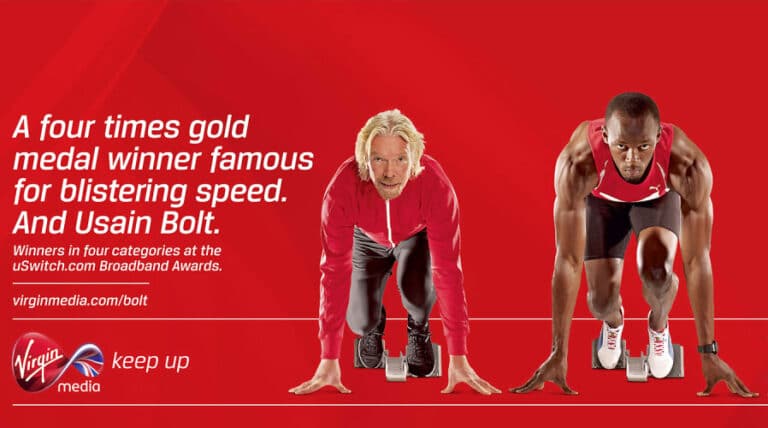Hiring Private Equity Leaders – Part I: Ideals and Compromise
First in a series from Cornerstone Singapore
Part One – Core Hard Credential Constituents
The bar is set high. Dynamics at Private Equity firms is fast, aggressive and all conquering. As the investor leader you’re thrust into that all too familiar position of tackling senior leadership management issues at a newly acquired portfolio firm.
This four-part series will look at the challenging factors surrounding the search for the ideal candidate. The focus is squarely on meeting unique demands of private equity performance, but will often be reviewing many senior executive traits.
Part One will visit portfolio company executive core credentials, diving into hiring assessment essentials to find the hard skills needed to lead a portfolio company and run the business. Part Two will examine parallel soft skill essentials.
Part Three will explore the ideal of openness, and justification for compromise and how these impact the successful conclusion of senior executive hiring.
Part Four will balance needs with compromises, float tangential opportunities to expand horizons and clear the myopia hiding that elusive ‘pink giraffe’ management candidate.
Let’s get started
1. You Want to Find a New Executive Leader Quickly, but have Exacting Requirements.
You’re not happy with your current C-level management team. You feel the current executives are hampering progress with their blinkered experience from 20 years with the firm. They just can’t see through your own lens.
No great mystery. You are the deal partner, this new portfolio entity is your baby, and you’ve mapped out how you will create the next sensational growth company and earn that once in a life-time carry.
But life just got more complicated. You’ve found out your investment is a tangled web of inter-related human wheels and cogs. And the most complex of all components to manage is people.
Take stock. You’ve provided capital surety. It’s now only people that matter. How you act with management selection will determine your success.
You know what you need. You can visualise what the next CxO team will be like, and what they need to possess in terms of experience and capability. But, you didn’t buy a $10bn company expecting to lure the right people over time. You want and need to move quickly.
But in-demand executive talent with what you consider crucial private equity portfolio management experience is scarce and hard to attract. And that will compound challenges in hiring. Adding a new CxO can create instability in a firm that may have relied on possibly generations of insiders, or in the case of a newer start up, a mercurial leader. Perhaps your confidence in management rejuvenation is even starting to wane after all the politics, personalities, and history rear their ugly heads.
Incidentally, pause a moment. Did you take that advice to have an independent assessment of all the management team pre-closing?
Having determined that new talent is essential there are significant calls to make in your endeavour to locate and secure it.
2. Your Search Partner
Do you need to engage a professional search firm?
It’s not a given. As the investor leader, it is expected that you have a very solid idea of what you are looking for in terms of the executive talent needed to deliver your goals. But that in itself threatens to become an obstacle by consuming too much of your time. You are an investor, not a recruiter.
Engaging a search partner with expertise and an outstanding reputation in PE may be a wise strategy. The search firm will have a database of qualified candidates to complement your own. More importantly, their professionals will have the experience and knowledge to know what lines of questioning to pursue in order to quickly uncover exceptional talent or expose weakness. [See the Editor’s Note below]
3. Confidence in What is Essential.
First and foremost, do you have core characteristics of the ideal profile nailed down? You will have your own, and your colleagues’ depth of knowledge to draw on, perhaps there’s a template you can work from. But be rigorous in pursuit of the finely tuned skills which will absolutely square the circle for your CxO portfolio team.
While deriving a no-compromise competence check list, take a look at the basics for your private equity sector. Focus on a handful of core demands specific to portfolio companies in two broad criteria, hard and soft talents.
4. Hard, Run-the-Business Competencies.
The bedrock to candidate credentials are hard competencies; the daily experience to manage and grow a portfolio company.
Topping a daunting list of experiences is a thorough understanding of your market place. Most often, your candidate will have previously operated as a senior leader within a relevant sector. A candidate must have the experience to:
- synthesise your portfolio company business model and value proposition, and consequently be able to assess your firm’s ability to compete;
- imagine and propagate a strategy and plan. The CEO will have to deliver a vision and forward path to the board confidently and convincingly;
- build trust with members of the workforce, who may have spent a lifetime in their industry and have to get behind a new credible direction. Employees may have become blinkered by a lack competitiveness, rather than seeking solutions.
Your future executive will require ‘the right kind’ of board experience. A large divisional CEO at a billion dollar MNC may have sat in on corporate board meetings, presented updates for their region, or division. Others may have been on the board of SMEs with a dictator Chairman.

Ideal candidates will have an ability to create a vision and strategy that will both meet private equity company thinking and be realistically executable. The portfolio leader may find the drive for re-invention and accelerated growth incongruous in the context of market realism.
Frequently there will not be a strong strategy thinker in the existing management team and the CxO candidate is likely to take on the role to visualise, create, test, write and present a business roadmap. Have they ever prepared a master plan largely by themselves?
Large human resource, talent development and acquisition departments perhaps made life easier for a candidate in the past, but they now need to be a step ahead of a smaller and less experienced team to guide and lead. And how will a candidate handle employees that will be left behind, particularly those who might be destructive to the culture and fabric of the company.
These are very real situations in a new portfolio company and strong people skills are a must.
The ability to build
The candidate must have an ability to build and lead a high-performance team with complementary strengths. Hiring success pivots on whether exceptional future candidates will want to work for your candidate and buy into his or her strategy.
Transformation is going to be unceasing. Anticipated company performance may not be as anticipated. The addition of new business through bolt-on, or the loss of key individuals through change are frequent occurrences. The candidate will have to demonstrate performance during disruption; to be strong but adaptable, not hesitating on people decision making, and turning corners.
Similarly during disruption the CxO must be adept at managing or changing core DNA, or the culture of a company. There will be transformation in the business, and also in the culture, it will need to be shaped, and communicated.
Assessment of the right CEO has to probe for real life experiences of implementing new people strategies, not just re-arranging deck chairs. If they previously left a role because they were tired of frequent re-organisations then don’t expect them to flourish in a private equity portfolio firm.
The future CxO will have to execute on stretched goals and deliver healthy operating margins, re-direct the business, hire high-level game changers, but with constant pressure on spending. A portfolio company’s own dry powder can be limited; free capital will have quickly been scooped up. They must have worked successfully in this tight financial scenario and still deliver growth.
Hard skills are somewhat easier to identify through life experiences, and results. Well-placed questions on hard skills will quickly surface problems. Evaluations take time though to surface compatible candidates, and alignment assessment will go beyond typical opaque career experiences.
Be sure your search consultant has depth in their relevant industry experience, walked your ‘shop floor’ and talked with senior management to really tune into your company environment.
In Part Two, we look at the soft credentials you are looking for in a PE leader
- Hiring Private Equity Leaders – Part I: Ideals and Compromise
- Hiring Private Equity Leaders – Part II: Core Soft Credential Constituents
- Hiring Private Equity Leaders – Part III: Then the Challenge
- Private Equity Recruiting – Part IV: Don’t Overlook Tangential Opportunity




